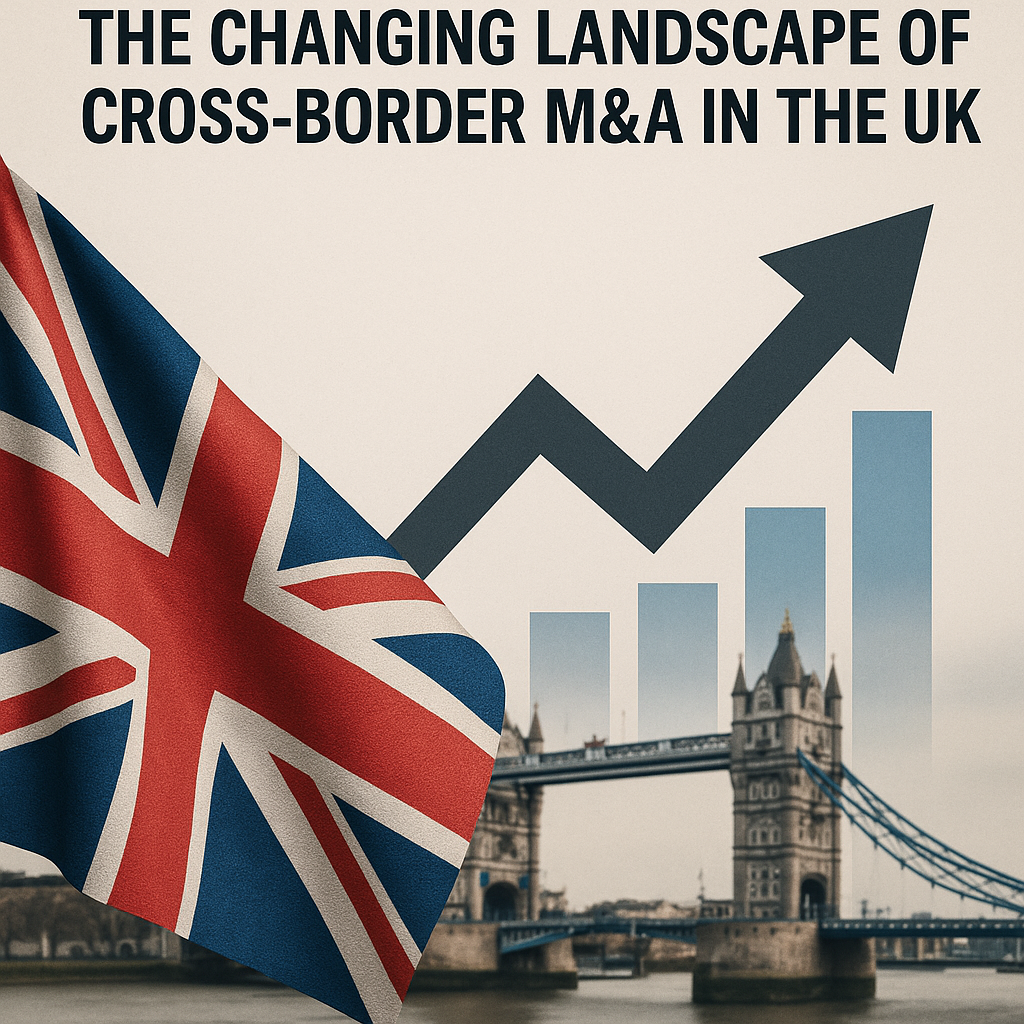Cross-Border M&A: Inward Investment into the UK Post-Brexit
The UK has long been a global hub for cross-border mergers and acquisitions (M&A), attracting significant international investment. However, the landscape for inward investment into the UK has been evolving, particularly since the Brexit referendum and the UK’s subsequent exit from the European Union (EU). The shifting regulatory and economic landscape has raised important questions for investors looking to enter the UK market. This article explores the trends and opportunities in cross-border M&A, focusing on the impact of Brexit and the prospects for inward investment into the UK.
The Impact of Brexit on Cross-Border M&A
Brexit has undeniably reshaped the UK’s economic and regulatory environment. Historically, the UK’s membership in the European Union provided businesses with unfettered access to the EU’s single market. However, post-Brexit, the UK is no longer part of this arrangement, creating both challenges and opportunities for cross-border M&A.
One of the immediate concerns for inward investors was the uncertainty surrounding trade relationships and regulatory frameworks. The UK’s departure from the EU meant that businesses could no longer rely on EU trade deals, and new arrangements had to be negotiated. While the UK secured a trade agreement with the EU, which allowed for zero-tariff trade in goods, the new rules have created additional paperwork, customs checks, and regulatory hurdles. These changes have had an impact on companies considering mergers, acquisitions, and investments in the UK, particularly in sectors heavily reliant on EU markets.
Despite these challenges, the UK remains an attractive destination for cross-border M&A for several reasons. Firstly, the UK has retained its reputation as a global financial centre, with a well-established legal system and access to a highly skilled workforce. Moreover, the UK government has taken steps to ease the regulatory burden on investors. The introduction of the Global Talent Visa and other initiatives to attract foreign businesses have helped bolster the UK’s position as a favourable destination for inward investment.
Key Sectors for Inward Investment into the UK Post-Brexit
Certain sectors have been particularly appealing for international investors in the post-Brexit era. Technology, financial services, healthcare, and renewable energy have seen significant cross-border M&A activity. The UK’s reputation for innovation, a thriving tech ecosystem, and a strong talent pool continue to drive investment in the technology sector, especially in areas like fintech and artificial intelligence.
The financial services sector has also seen renewed interest from global investors. London remains a leading global financial hub, and the UK’s favourable regulatory environment for financial institutions, including low corporate tax rates, has attracted inward investment. Post-Brexit, many European financial institutions have chosen to establish a presence in London to retain access to global markets, further enhancing the UK’s appeal.
The healthcare and life sciences sector has also seen significant cross-border investment, driven by the UK’s expertise in pharmaceuticals and medical research. Brexit has prompted some uncertainty about future regulatory alignment with the EU, but the UK’s commitment to maintaining high standards in healthcare and its support for cutting-edge research has continued to attract international buyers.
The UK government’s commitment to decarbonisation and the growth of green energy initiatives has also positioned the renewable energy sector as a key area for inward investment. With various incentives for clean energy projects, including offshore wind farms and energy storage, the UK is positioning itself as a leader in the renewable energy market.
Strategies for Inward Investment Post-Brexit
In order to capitalise on these opportunities, cross-border investors need to develop clear strategies for entering the UK market post-Brexit. Here are some of the key factors that investors should consider when evaluating opportunities for inward investment in the UK:
- Regulatory Considerations: Post-Brexit, UK businesses must comply with both UK domestic laws and any relevant international regulations. Navigating the regulatory landscape effectively is crucial, particularly for businesses that may have EU operations or deal with EU-based customers. It is essential to stay informed on changes in immigration policies, customs arrangements, and sector-specific regulations to ensure compliance.
- Tax Considerations: The UK continues to offer competitive corporate tax rates, which makes it an attractive destination for cross-border M&A. However, post-Brexit, there have been some changes to the UK’s tax regime, particularly with regard to VAT and customs duties. Investors should work closely with tax advisors to understand how these changes may impact their M&A transactions.
- Currency Volatility: The pound has experienced volatility since the Brexit vote, impacting the value of cross-border transactions. While this presents risks, it also creates opportunities for investors to acquire UK assets at more favourable exchange rates. Currency management strategies can help mitigate risks associated with fluctuating exchange rates.
- Market Intelligence and Due Diligence: Comprehensive due diligence is essential for successful cross-border M&A transactions. Post-Brexit, it is even more important to ensure that all risks associated with regulatory, financial, and market conditions are fully understood before proceeding with an acquisition. Conducting thorough market research and engaging local experts can provide valuable insights into the UK market.
Churchill Mergers’ Perspective on Cross-Border M&A Post-Brexit
At Churchill Mergers, we have observed a continued interest in cross-border M&A, despite the challenges posed by Brexit. Our CEO, Jamal Khan, shares his thoughts on the current state of inward investment into the UK, particularly from international buyers:
“Brexit has undoubtedly changed the landscape for cross-border M&A into the UK, but it has also created new opportunities. International investors are still keen to enter the UK market, especially in key sectors such as technology, healthcare, and financial services. The key to success in these transactions is a deep understanding of the regulatory landscape and market conditions, as well as a commitment to long-term growth.”
Churchill Mergers has been at the forefront of facilitating cross-border transactions, providing expert advisory services to both buyers and sellers navigating the complexities of post-Brexit M&A. Our team’s expertise ensures that every transaction is conducted with a thorough understanding of the changing market conditions and regulatory environment.
The Future of Cross-Border M&A in the UK
Looking forward, the future of cross-border M&A in the UK remains positive, despite the challenges brought by Brexit. The UK government continues to create a business-friendly environment, offering tax incentives and regulatory adjustments to attract international investors. Additionally, the strength of the UK’s key sectors, including technology, finance, and energy, ensures that it will remain a sought-after destination for cross-border M&A activity.
The Brexit process may have altered the immediate landscape for inward investment into the UK, but it has also encouraged businesses to adopt more creative and strategic approaches to entering the market. By staying informed about regulatory changes, utilising expert advisory services, and carefully assessing market opportunities, international investors can continue to find value in the UK’s dynamic M&A environment.
Conclusion
Inward investment into the UK has undoubtedly evolved in the wake of Brexit, with both challenges and opportunities for cross-border M&A. While new regulatory frameworks and market conditions have emerged, the UK’s appeal as a global financial hub, a leader in innovation, and a strong market for key sectors has not diminished. With the right strategy, informed decision-making, and expert guidance, investors can navigate the post-Brexit M&A landscape and capitalise on opportunities for growth.
For businesses seeking to enter the UK market through M&A, Churchill Mergers offers expert advisory services to ensure that every transaction is aligned with the changing regulatory and economic conditions.
Visit Churchill Mergers to learn more about how we can support your investment strategy and guide you through the M&A process.


